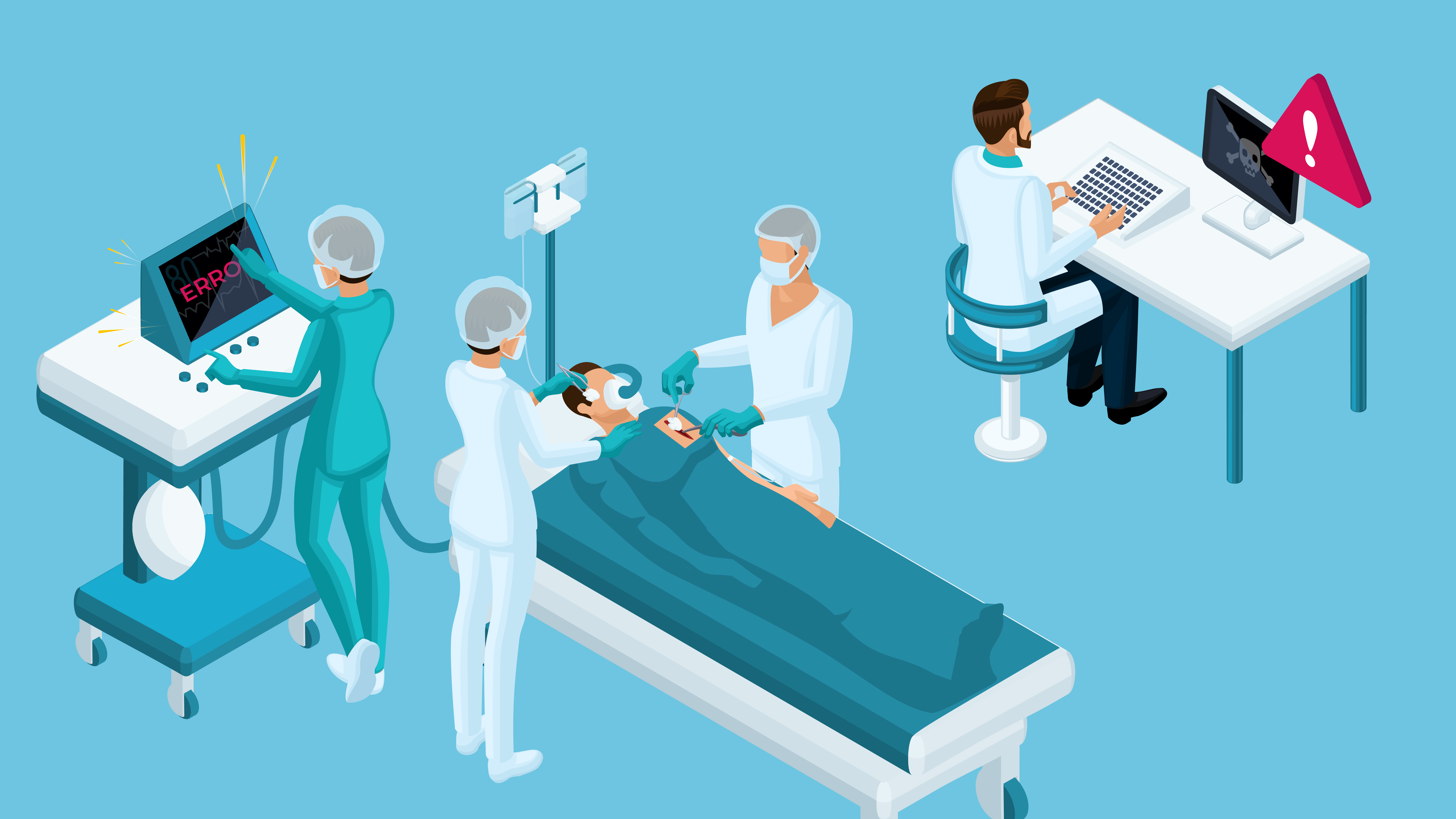To support this diverse and fast-moving sector, the insurance market is working hard to match its complex and evolving needs with a range of carefully designed and flexible covers. So, we’ve put together the key insurance types that businesses operating in the healthcare industry should primarily consider.
System downtime is extremely serious for healthcare providers and can prevent access to patient information, medical notes, treatment plans and appointment schedules. It can interrupt ongoing care, impact business revenues and, worst of all, lead to patient injury.
Recent ransomware attacks have brought healthcare providers to their knees around the world, hackers can disable systems supporting patient check-in even emergency services. It makes it virtually impossible for medics to review patient notes and leaves them making clinical decisions without a full picture of a patient’s previous history.
Cyber insurance provides cover for losses stemming from such ransomware attacks as well as from phishing scams and data breaches. It also covers business interruption and system damage losses. Cyber response teams help insureds respond quickly and effectively to cyber events and to protect their reputations in a sector where trust is key.
Healthcare technology is increasingly sophisticated. Artificial intelligence (AI) reads and delivers results from scans, runs patient chatbots and suggests diagnosis and treatment options.
But if the technology gets it wrong or malfunctions, it can lead to patient injury or death. It can hit ongoing operations, damage property and create significant reputational damage. Insurance can help cover these losses.
The development of new technologies has also driven an increase in legal cases relating to intellectual property infringement. They’re costly to defend and require specialist expertise – insurance offers that expertise as well as financial support.
Professional mistakes in the healthcare sector can come at a heavy cost. Misdiagnoses, surgical errors and inappropriate drug prescriptions can harm and kill patients.
Where healthcare professionals or organisations have to defend cases against them for causing injury, the costs can be crippling. Even if they win their case, few legal systems allow them to reclaim their defence costs. Medical malpractice insurance provides cover for defence costs in such cases.
Policies also offer include reputational cover to meet the expenses of specialist public relations consultants to counter the impact of brand damage from malpractice cases.
Research and development is the cutting edge of healthcare. Insurance can cover accidental bodily injury and property damage losses arising from research projects.
Similarly, the development and use of implanted and non-implanted devices – pacemakers, wearables, health monitors – carries risks. If they cause bodily injury or property damage, insurance can again help cover the associated costs. Cover extends to situations where products released to market are defective, mislabelled or contaminated.
Software is an essential part of medical research and drug development. It powers everything from treatment planning tools to diagnostic devices. Technology errors and omissions insurance helps to cover the costs of defending claims arising from mistakes made by the software.
Life science insurance also covers compensation costs for people injured in clinical trials as well as the associated defence costs. And it’s there to help meet losses from product recalls.
But what's better than individual policies? A dedicated policy that combines them all!
A comprehensive digital healthcare policy offers cyber, technology, bodily injury and IP which makes it paramount for modern day healthcare providers. Especially for those companies that offer hybrid operations, use AI, or conduct video consultations for example. Find out more about CFC's award winning eHealth policy here.
To get a better idea of the insurance products CFC offers healthcare providers, get in touch to discuss the covers and flexible options available.



